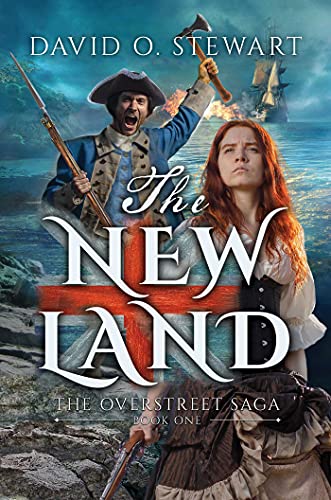The New Land
The New Land—Book One in David O. Stewart’s trilogy, The Overstreet Saga—follows Johann and Christiane Oberstrasse from Rhineland Germany to frontier America. Escaping life as a mercenary soldier, Johann aspires for his family to become peaceful farmers. Enticed by promotional literature promising free land, they make for General Waldo’s settlement at Broad Bay, in colonial Maine. But peace and tranquility are elusive. Tragedy strikes even before they’ve crossed the Atlantic; their young son, Peter, is buried at sea. In Maine, innumerable trials await the ever-expanding family (based partly on the author’s ancestorial history). Promised land is not delivered. Food is sparce; shelter meagre; winters cold; death, always lurking. Perhaps “America’s disappointments were only beginning,” Johann worries. Warfare, too, is ubiquitous. Conflicts with Penobscot Indians permeate daily life. Soon, the colonists are swept up in the Great War for Empire, pitting Britain against France. Johann finds himself back on the battlefield, as a Ranger Captain at the 1758 siege of Louisbourg in Nova Scotia. Next, the American Revolutionary War looms. In Waldoborough, son Franklin enlists, dashing Johann’s wish that “his sons would never be soldiers.”
Eighteenth-century America provides ample material from which Stewart—a former lawyer and author of bestsellers in fiction and narrative nonfiction—constructs a good story. He demonstrates his main characters’ gradual transformations. Germans become British and then American; Obertrasses become Overstreets. We learn about grand historical trends and themes—the scramble for land; colonial life’s hardships (“pestilence, famine, war, death”); an ambiguous Revolution. These topics, Stewart artfully illuminates through the imagined lives of his characters, participants often far removed from the center of things. Book Two, The Burning Land, focused on the Civil War, will be released in May 2022. So, readers won’t have long to wait for the 19th-century leg of Stewart’s sweeping historical journey.










